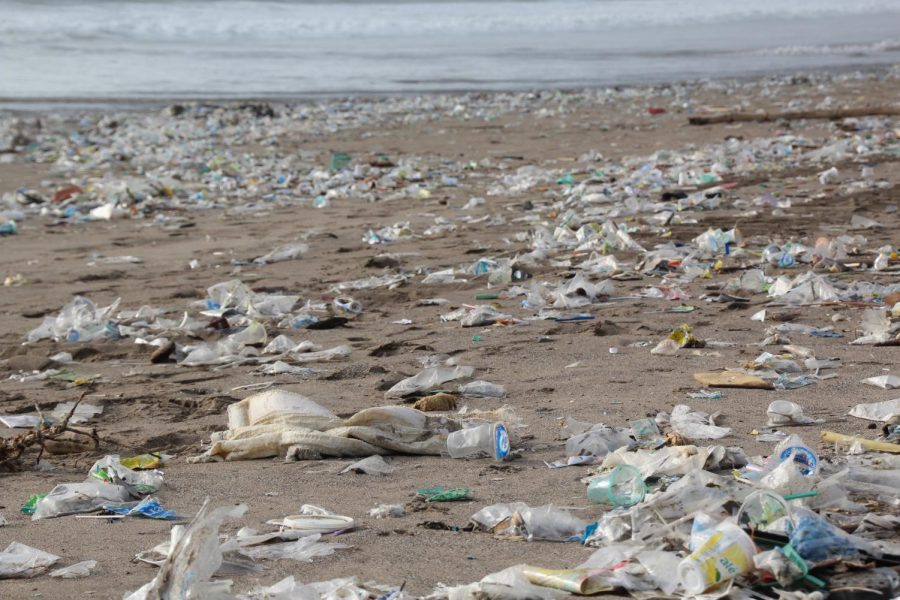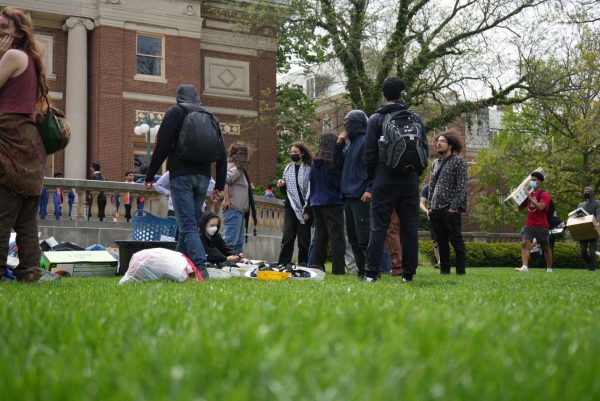College culture augments environmental impact
Columnist Hayley urges people to think about the consequences of the waste they produce during this upcoming Earth Day.
April 18, 2019
Earth Day is on April 22. While many University students may choose to celebrate by taking a walk on the quad, that’s not good enough.
Earth Day and its focus on general care and concern for the environment is not a new topic, and many of us are familiar with repetitive speeches about how to avoid polluting, along with why we should be turning off the faucet while we brush our teeth and turning the lights off when we leave our rooms. This repetition leaves a disconnect between our daily lives and the real impacts of humans on the environment.
While we might absentmindedly throw a plastic water bottle in the garbage, we ignore things like how a 26-foot sperm whale was found dead earlier this year with over 48 pounds of plastic in its body. As we move towards being more aware of our impact on the environment, we as University students should understand that our carbon footprint is heavily influenced by our college culture.
The University of Illinois Facilities and Services unit reported there are over 1,000 recycling bins on campus. In 2011, our University recycled 4.2 million pounds of recyclable materials (or 98 pounds per undergraduate, faculty and staff member of the University), and during construction on campus, 75% of waste is recycled and has come back as benches and cabinets.
While some may see these statistics as positive results of waste reduction initiatives, the numbers are also incredibly concerning.
Get The Daily Illini in your inbox!
The fact that our campus wastes so much in the first place is a problem in and of itself.
Our campus bars use hundreds of plastic cups to serve drinks, and some bars have specifically designed plastic cups for drink deals throughout the week.
In efforts to serve the academic needs of our community, countless classrooms, libraries and labs remain operational for most of the day, despite campaigns to get facilities to reduce electricity usage. While events such as “Illini Lights Out” have been able to put a dent in electricity bills, they could stand to be more successful if more students participated.
The emissions and waste produced by the University cannot be blamed on the institution alone. In fact, starting in 2008, the University has been following the Illinois Climate Action Plan (iCAP) to reach carbon neutrality by 2050.
Since then, the University’s annual greenhouse gas emissions dropped from 575,000 tons in 2008 to 413,000 tons in 2017. To put that number in perspective, the 2020 goal is 402,000 tons. While this is a good trend, there is clearly a lot more work to be done.
Other goals are much further from their 2020 or 2025 objectives. The purchase-of-clean-energy goal for 2020 is 120,000 MWh per year, while the University currently only reaches 31,000. The 2025 goal for on-campus solar energy production is 25,000 MWh per year, but it currently reaches less than 7,000.
We need to do more than simply be concerned with recycling single-use products in our dorms and apartments and considering walking or biking as opposed to driving across campus. It is time to shift our mentality to ways we more broadly use (or waste) campus infrastructure.
As more and more students call the University home each year, our collective environmental contributions have the potential to move in a more positive or more negative direction. So as this school year draws to a close, recognize that your lasting impact on this campus can be more than a personal or academic achievement.
Take advantage of the resources provided by the University to help our campus be more green, and find ways in your daily life to make actionable changes.
Hayley is a senior in ACES.







